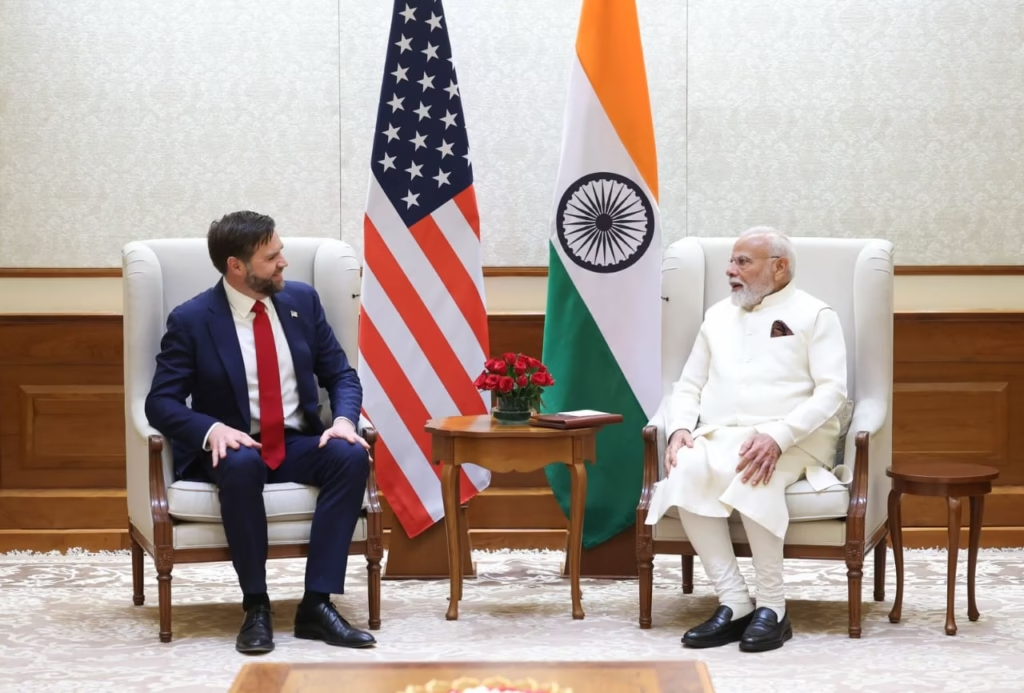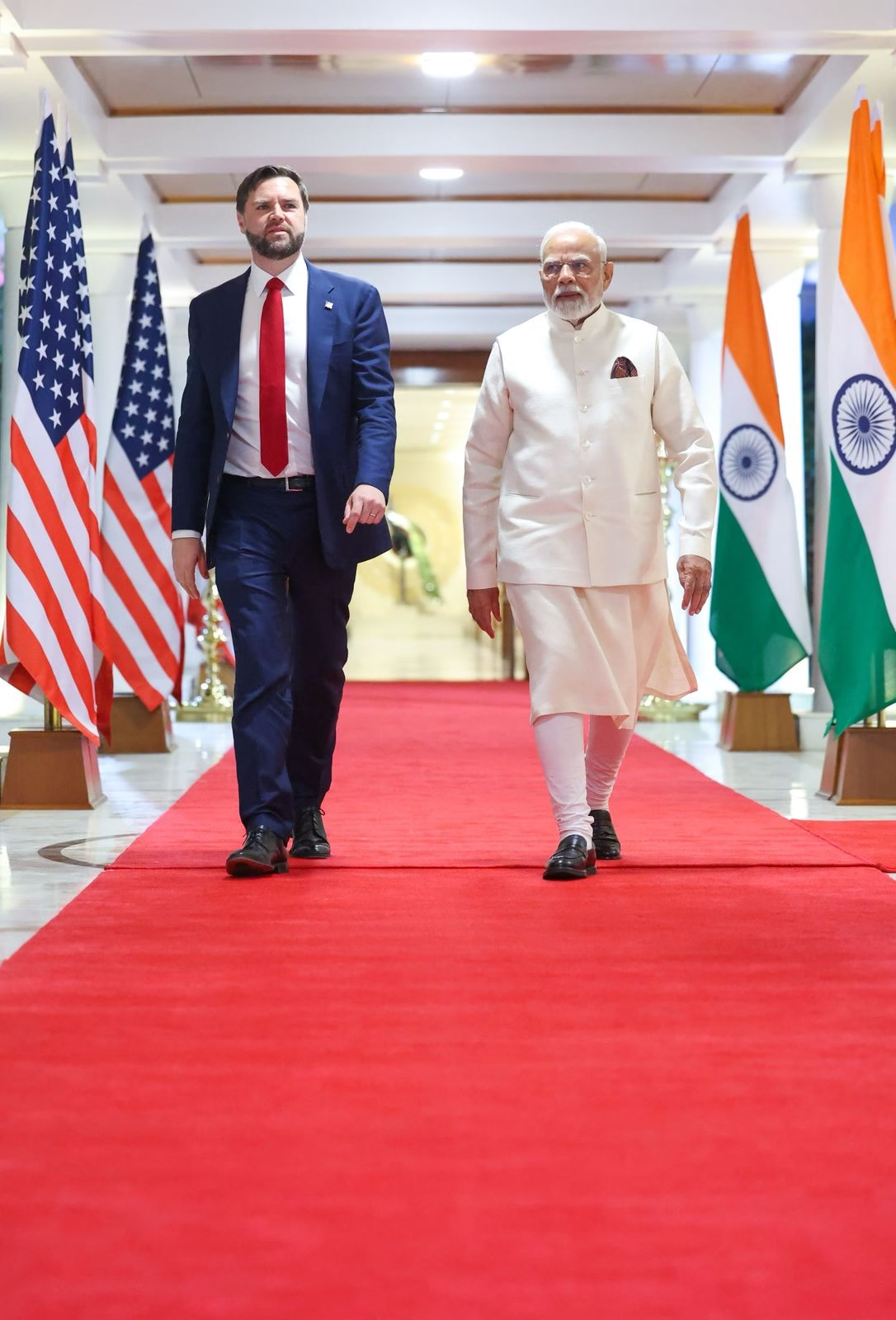JD Vance’s visit to India in April 2025 is viewed as an opportunity to strengthen economic ties and address trade concerns between the two nations .

Key potential impacts:
- Trade Deal Discussions: A primary focus of the visit is to discuss a potential bilateral trade deal aimed at enhancing economic relations . This includes addressing tariffs and market access issues .
- Economic Partnership: The visit is expected to deepen the India-U.S. Comprehensive Global Strategic Partnership .
- Addressing Trade Tensions: Vance’s visit occurs against the backdrop of trade tensions initiated by President Trump, including tariffs on Indian exports . India hopes to secure a trade deal to avoid increased levies .
- Areas of Discussion: Likely discussion points include reducing tariffs on U.S. goods, addressing non-tariff barriers, and increasing cooperation in technology and innovation .
- Specific Outcomes:
- An “early tranche” of the proposed bilateral trade agreement (BTA) focusing on sectors where both sides eliminate import duties is in discussion .
- The government is consulting with industry players to address Washington’s expectations of tariff cuts and the removal of non-tariff barriers .
- Geopolitical Context: India is a strategic ally of the U.S. in combating China’s influence in the Indo-Pacific region . Trade discussions also consider the broader geopolitical landscape and the U.S.’s efforts to counter China’s economic influence .
- Business Opportunities: U.S. companies like Apple and Google have expanded operations in India, and further boosting trade ties could lead to more such opportunities .
- Energy Sourcing: Discussions may involve how the United States can assist India in diversifying its energy sources .
Current trade relations between India and the United States :
The current trade relations between India and the United States involve ongoing trade negotiations and discussions aimed at addressing trade imbalances and fostering economic cooperation .
Key Aspects of India-U.S. Trade Relations:
- Trade Negotiations: As of April 2025, trade negotiations between the U.S. and India are in progress .
- Trade Imbalances: The Trump administration sought to rebalance America’s trade relationships, indicating a focus on addressing trade imbalances with countries like India .
- Tariffs: The United States imposes a 2.5% tariff on passenger vehicle imports, while India imposes a 70% duty on the same product . For networking switches and routers, the U.S. has a 0% tariff, while India levies rates between 10% and 20% . India also has higher tariff rates on rice in the husk (80%) and apples (50%) compared to the U.S. .
- Non-Tariff Barriers: India imposes burdensome and duplicative testing and certification requirements in sectors like chemicals, telecom products, and medical devices, making it difficult for American companies to sell their products in India . Removing these barriers could increase U.S. exports by at least $5.3 billion annually .
- Intellectual Property: The U.S. Chamber of Commerce emphasizes strong intellectual property (IP) standards as crucial for economic and cultural prosperity, potentially influencing trade discussions .
- Areas of Cooperation: The United States and Kenya are holding the seventh negotiating round under the Strategic Trade and Investment Partnership . The United States and Paraguay held the Third Meeting of the Trade and Investment Council . These meetings indicate the U.S’s commitment to strengthening trade and investment ties with various countries.
- Specific Concerns: The U.S. Trade Representative is engaging in initiatives, such as seeking a Mexican review of alleged worker’s rights denials . This shows a focus on ensuring fair labor practices in trade relationships.
- US Trade Deficit: Large and persistent annual U.S. goods trade deficits have led to the hollowing out of the manufacturing base, undermined critical supply chains, and rendered the defense-industrial base dependent on foreign adversaries .



























